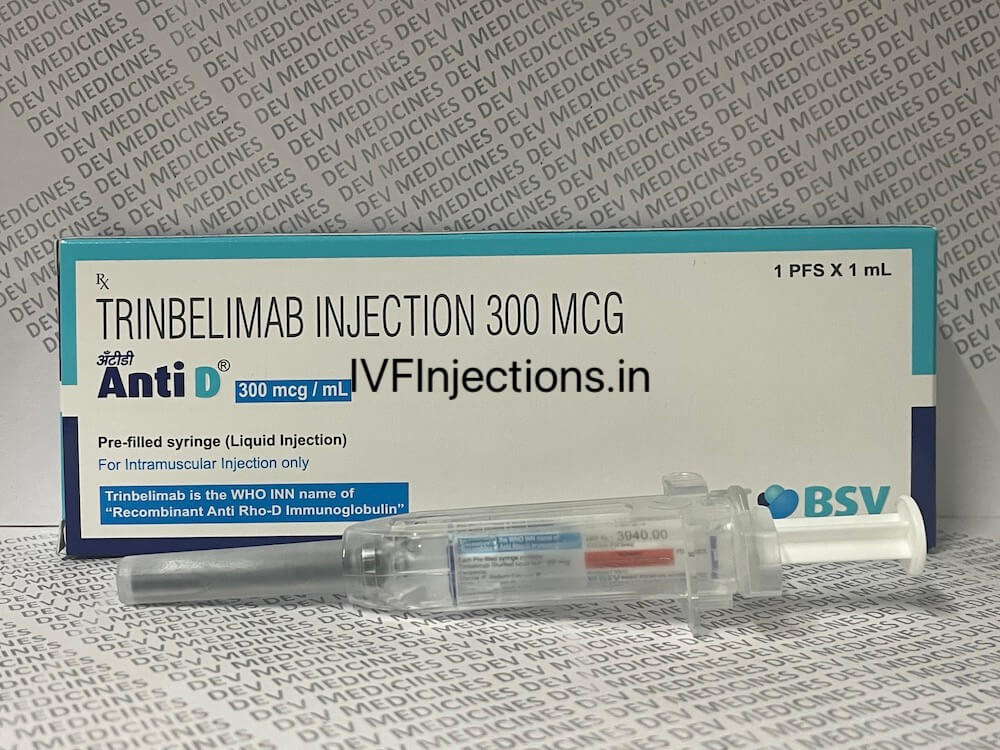What is Rh Factor?
The Rh factor refers to a specific protein found on the surface of red blood cells. If your blood cells have this protein, you are considered Rh-positive. If you do not have the protein, you are Rh-negative. While the Rh factor does not usually affect your health, it becomes crucial during pregnancy because of the potential incompatibility between the mother's and baby’s blood types.
If an Rh-negative mother is carrying an Rh-positive baby (inherited from the father), her body may recognize the baby’s Rh-positive blood cells as foreign and produce antibodies to fight them off. This is known as Rh sensitization, and while it doesn’t typically affect the first pregnancy, it can have serious consequences in future pregnancies. These include hemolytic disease of the newborn (HDN), which can cause severe anemia, jaundice, and even stillbirth in subsequent pregnancies if left untreated.
How Does the Anti-D Injection Work?
The Anti-D injection prevents Rh sensitization by introducing a small amount of Rh immunoglobulin into the mother’s bloodstream. This substance helps by neutralizing any Rh-positive cells from the baby that may have entered the mother's bloodstream before her immune system has a chance to create antibodies. By preventing the formation of these antibodies, anti d injection the Anti-D injection protects the mother and her future pregnancies from the risks associated with Rh incompatibility.
When is the Anti-D Injection Administered?
The Anti-D injection is typically administered to Rh-negative mothers at several key points during pregnancy and after delivery. The most common times include:
During Pregnancy (Around 28-30 Weeks): This is a preventive dose given to avoid sensitization as the pregnancy progresses. Even if there has been no significant bleeding or trauma, the injection acts as a safeguard.
After Birth (Within 72 Hours): If the baby is found to be Rh-positive, a second dose of Anti-D is administered within 72 hours of delivery. This is crucial because some mixing of the baby’s blood with the mother’s can occur during delivery, increasing the risk of sensitization.
After Any Event that Might Cause Blood Mixing: This includes miscarriages, abortions, ectopic pregnancies, or any trauma to the abdomen during pregnancy, susten injection such as a car accident or invasive prenatal testing like amniocentesis.
Why is the Anti-D Injection Important?
For Rh-negative women, the Anti-D injection is essential in preventing the complications associated with Rh sensitization. Without it, the body’s immune response can endanger future pregnancies by attacking the red blood cells of Rh-positive babies. This can lead to hemolytic disease of the newborn, which can result in life-threatening conditions like anemia, heart failure, or even death.
By receiving the Anti-D injection, Rh-negative mothers are given peace of mind. It allows them to have healthier pregnancies and reduces the risk of complications for both the mother and the baby in current and future pregnancies. The injection is safe and well-tolerated, with minimal side effects that usually include mild discomfort at the injection site or, very rarely, a slight fever.




.jpg)

Comments